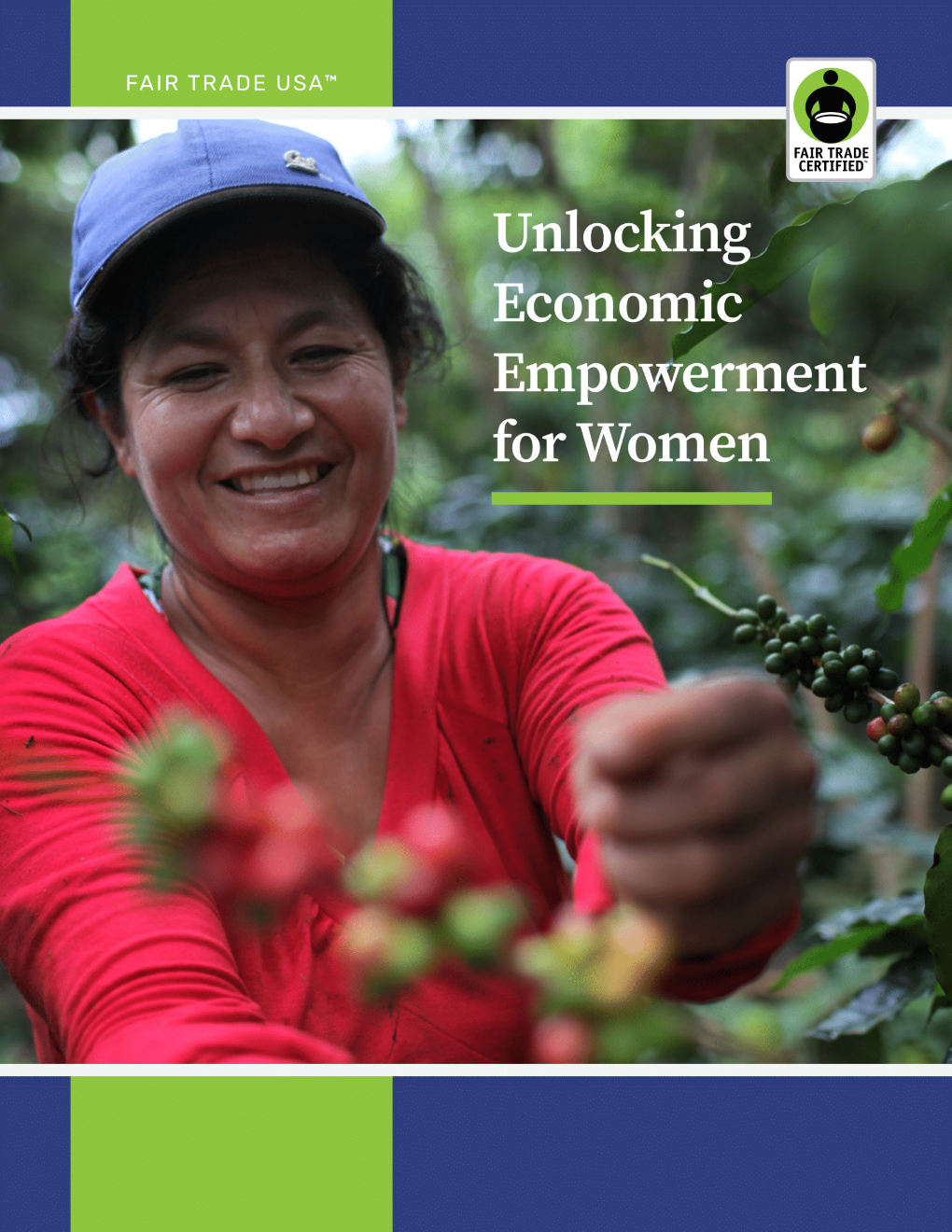In the realm of Fair Trade, gender equality stands as a cornerstone for fostering equitable development and social justice across the United States and around the world. Women, girls, and gender non-conforming people still face systemic inequalities that impede their ability to participate fully in society. Too often, they are denied the same rights as men when it comes to health care, education, decent work, access to resources, and decision-making opportunities. Gender-based violence and discrimination reinforce the cycle of poverty and prevent social progress.
Gender equality is not only a basic human right and moral imperative; it’s also critical to economic development. When women and girls are given their rightful opportunity to thrive, we all succeed.
Fair Trade USA™ recognizes gender equity and women’s empowerment as core to its model and as essential for a prosperous future. The Fair Trade Certified™ program strives to be a catalyst for transforming the lives of women around the globe, allowing them to unleash their potential, uplift their families and communities, and contribute to global progress.
By focusing on how to empower women economically, we believe it’s possible to foster a future where economic opportunity isn’t confined to gender and women stand on equal footing, leading us toward a more just and prosperous world.
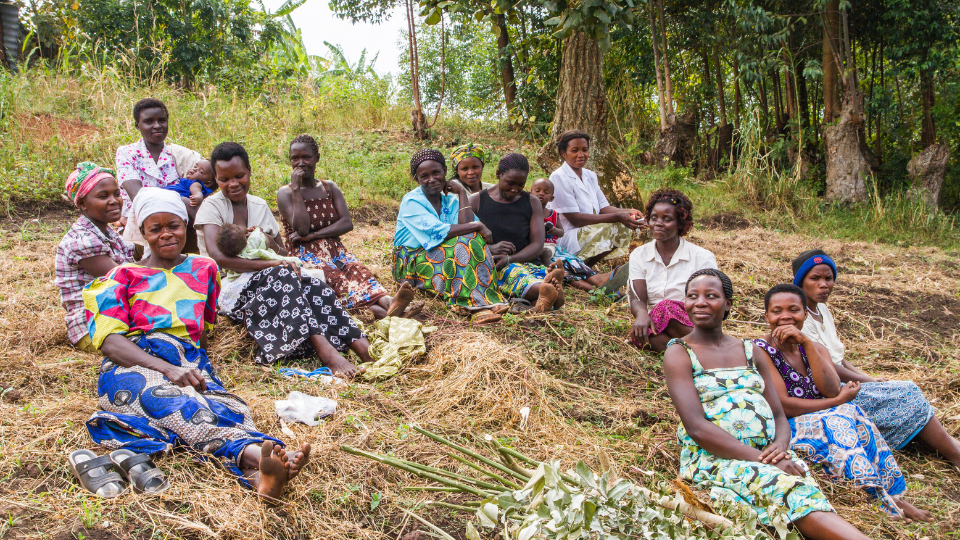
This group of tea growers started an organization to help empower women in their community to become better farmers. They have created training programs on how to grow food gardens that will provide food security as well as be a source of additional income. They are also getting more women involved in tea farming (men currently earn most of the income from tea growing in this region) so that they can play a bigger role in the decision-making in their households.
Mpanga Growers Tea Factory, Uganda
In Their Own Words: Women Reflect on the Impact of Participating in the Fair Trade Certified Program
1. Women in Leadership Positions
In support of gender equality, the Fair Trade Certified Program has created opportunities for women to move into leadership positions – whether as treasurers, Fair Trade Committee members, or organizers, they reported the program provided opportunities that were not previously accessible.
Speaking on the experience of having a leadership role, a 29-year-old farmworker in Mexico said: “Yes I love it, I have learned a lot, we had to do a lot of legal work that always helped us learn.” Meanwhile, Maria, a 40-year-old program participant in Chile shared: “I am the treasurer … and it has been a great experience because I have learned a lot.”
Even in cultural contexts where women are discouraged from participating in decision-making, participants were still able to gain more agency. One participant explained that, although she does not speak publicly, she shares her ideas in a women’s group where they can exert influence collectively. She continued:
“The cooperative has enabled us as women to be a little self-sufficient. We think together, we have ideas that we put in place, such as having a solidarity fund, something we did not have before, and together we think with the cooperative to be able to set up a lot of things.”
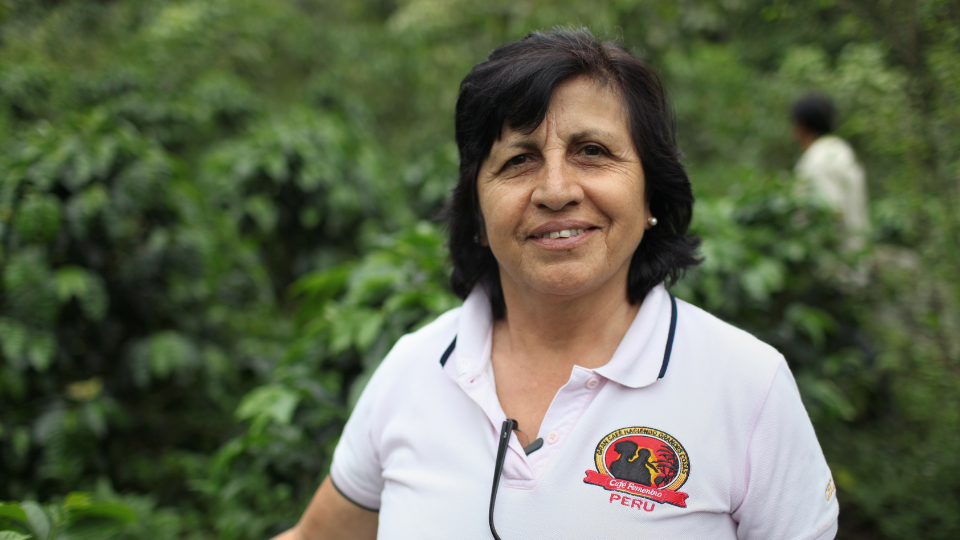
“The purpose of Café Femenino is to make visible the contribution women make not only to the household economy, but to the community and umbrella organization CECANOR. It also aids in providing women the same opportunities and respect in these mentioned spaces. By doing so, women gain confidence, status, are protected from marginalization, and it even motivates them to develop new ventures.” —Isabel Uriarte Latorre, founder of the Café Femenino, a select brand of coffee grown only by women. San Miguel, Peru
2. More Opportunities to Access Credit
Through Fair Trade Certified cooperatives, smallholder women farmers were economically empowered with access to low-interest loans to improve their businesses. A coconut farmer explained how she accessed the low-interest rate loans and easy repayments to also increase her business volume:
“I used the money [of the lending program] for buying and selling of vegetables and for my pigs. I was able to borrow 5 times because I am a good payer. It is more convenient to borrow from the cooperative rather than from other micro-finance institutions in our town. Most of these other micro-financers require weekly re-payments, which means you have to pay every week, and this is very hard for us. With the group’s lending program, you can opt to pay the whole amount after 6 months, which is easier for me. It also has very little interest.”
3. Community Development Projects
Smallholder cocoa farmers in the Ivory Coast highlighted the benefits women were able to experience because of major Community Development Projects: a maternity ward was built to provide pre- and post-natal care to women and newborns; a water pump eased the burden of fetching clean water, while a village school eased mothers’ worries about their children having to travel for miles to go to school each day.
“The women in labor needed to go a very far way to Abronamoue [and my] brother’s wife ended up delivering on the side of the road.”
The maternity ward contributed to the health of pregnant women and their infants in the community.
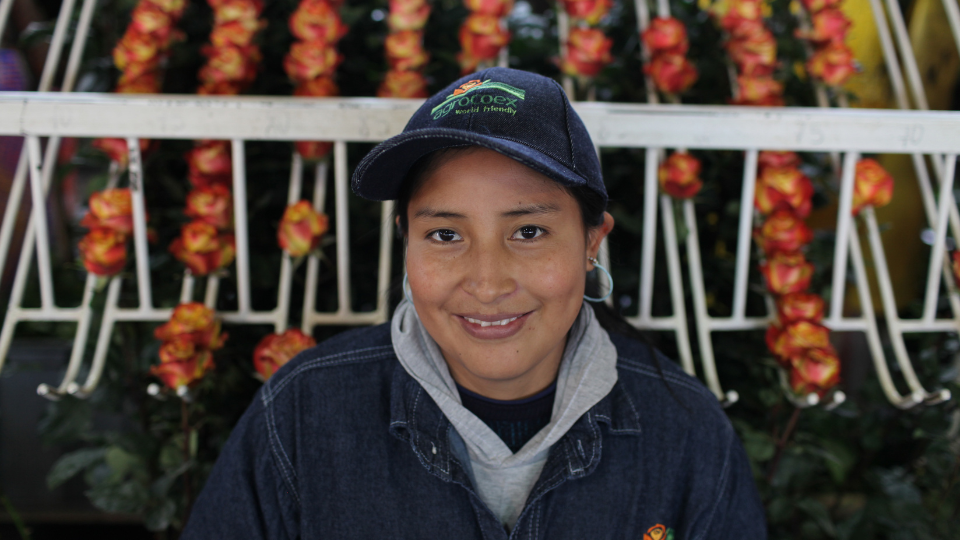
“The benefits here at Agrocoex are great. I especially find the laundry room and scholarships for my children useful.” —Miriam Taipe, a floral worker at Agrocoex, a Fair Trade Certified farm in Ecuador.
4. Trainings and Knowledge Exchanges
Many women reported that the tools purchased with Fair Trade Community Development Funds made their lives easier. The Fair Trade Certified program has helped women farmers to be equipped with more effective tools that eased the burden of physical labor, while hired laborers in factories benefitted from reduced domestic work. The purchase of useful household appliances, such as washing machines and food grinders, alleviated the time burden of domestic work which limited their participation in other skills development.
In India, Sulekha, 31, shared:
“Since we’re busy working the whole week, using the washing machine on Sunday helps us save a lot of time. We get a huge pile-up of clothes by then. We wash our clothes in the washing machine instead of my hands and it helps us save time and the clothes are washed quickly…”
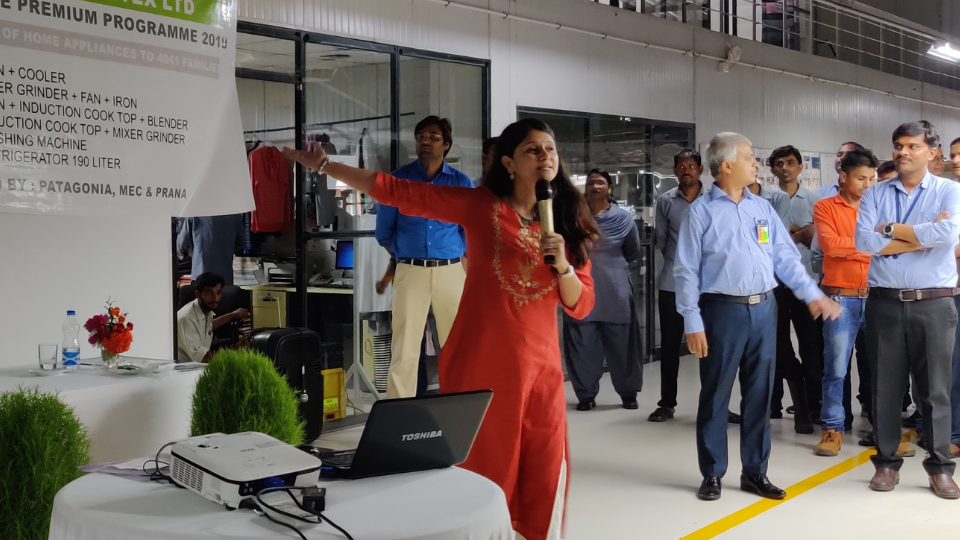
Sulekha from Pratibha Syntex Cooperative, India
In the Ivory Coast, a cocoa farmer said the equipment the cooperative brought her made her happy because as a woman, “it is difficult to work in the field and at the same time buy the products to come to work; the machetes, all that. It’s complicated, considering we’re in a fairly rural area; there is no money. Suddenly, all that was brought to me as material to work in the field, it’s something that relieves me enormously; because before, I didn’t have that.”
5. Easing Labor Strains on Women
Because women are equal participants in Fair Trade Certified programs, trainings are equally available. A few surveyed said that trainings went beyond work-related skills and addressed topics such as parenting and financial planning.
Female participants in the Ivory Coast shared their appreciation for the role women’s associations played in teaching money-saving skills and techniques, while coffee farmers in Peru provided beekeeping training for wives of farmers, offering a new source to generate their own incomes.
Women farmers also responded that access to trainings helped with their farm work. 64-year-old Adela, in the Philippines, said she was very happy with the technical advice and training she received at their general Assemblies:
“I was really happy because when there is a General Assembly, they always discuss methods, how to properly harvest, how to take care of your farm.”
Similarly, women from the Ivory Coast attended regular trainings reviewing best agricultural practices.
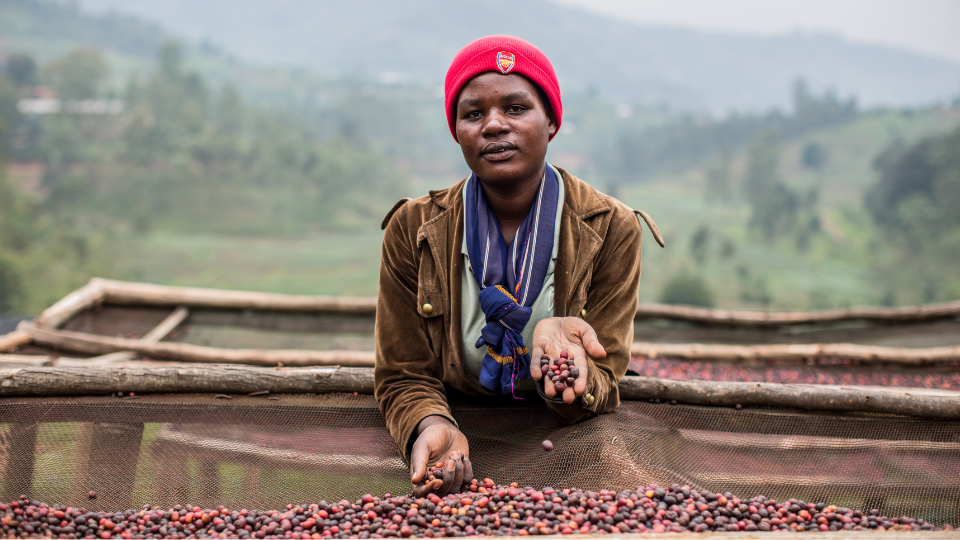
“As women we come together for trainings and try to find out how to add value to the coffee that we grow. I also enjoy other trainings through the women’s association like tailoring and sewing.”—Francine Uwamahoro, coffee farmer and member of the Abakundakawa cooperative in Rwanda
Fair Trade and Closing the Gender Gap
Fair Trade USA’s female participants leverage the program’s key components to empower themselves, each other, and their communities. Fair Trade Certified programs are helping women accomplish this by gaining access to credit, taking advantage of program-hosted trainings, gaining leadership experience, participating in community decision-making, easing burdens of paid and unpaid labor, and building vital community infrastructure such as maternity wards, schools, and local access to safe drinking water.
When the quality of life improves, women can innovate in their communities and in the workplace. When working environments are safe and supportive of women’s health, work attendance is more consistent, and employee retention increases. These women are freed to tap into their own potential, creativity, and connection to their local communities to address more complex problems and generate long-term solutions.
We know there is a long way to go to reach gender parity. Fair Trade is not the only solution to overcoming these persistent inequities, but we all play a role in supporting women’s empowerment. We will remain committed to listening, learning, and helping women realize their potential.
Unlocking Economic Empowerment for Women
Access our full report to learn more about how to empower women economically with the Fair Trade Certified program, helping close gender equity gaps and foster stable supply chains.
